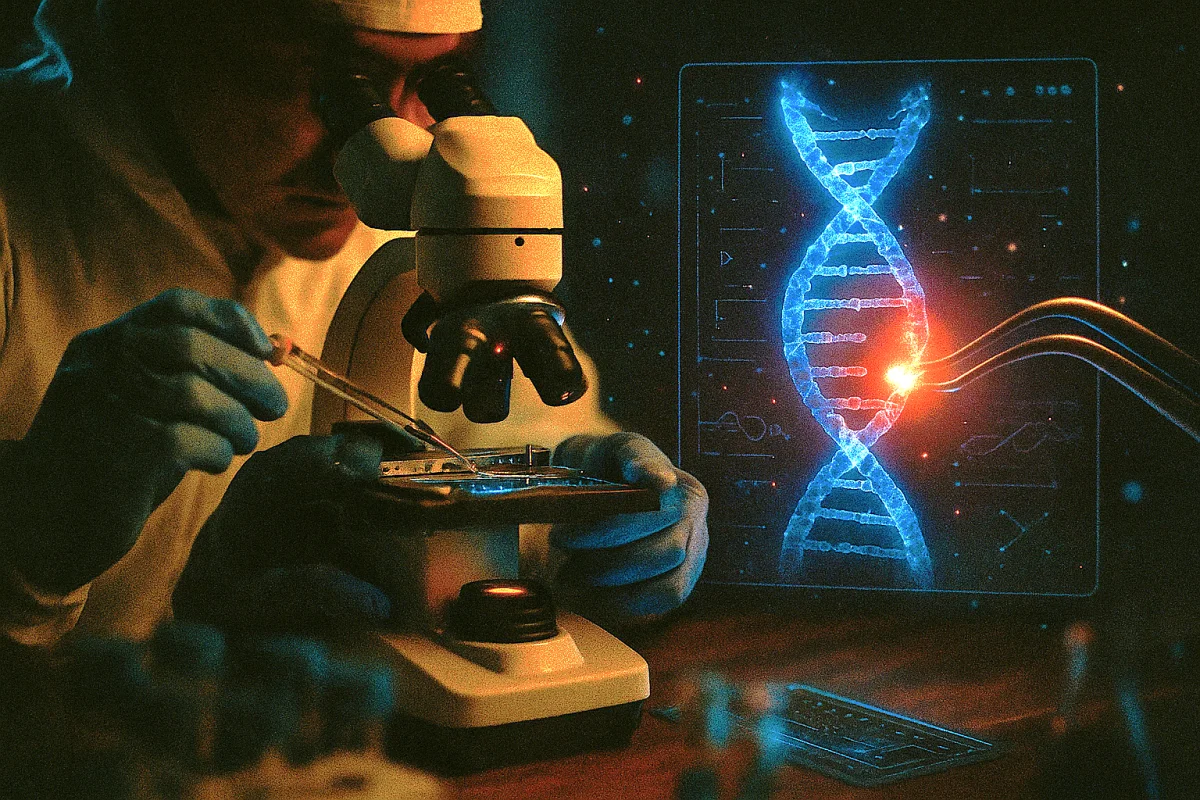Biotechnology: Gene Editing with CRISPR
Biotechnology has become one of the most transformative fields of the 21st century. While in the past scientists could only observe gene functions, today it is possible to precisely alter them. The CRISPR-Cas9 technology is the tool that has permanently reshaped genetic engineering. By 2025, its influence can already be seen in medicine, agriculture, and ecology.

What is CRISPR?
CRISPR is a natural mechanism originally discovered in bacteria as a defense system against viruses. Scientists repurposed it into a genetic "scissor" that can cut or replace specific DNA segments with high accuracy. The central role belongs to the Cas9 enzyme, which makes the cut at the designated location in the DNA strand.
How Does It Work?
CRISPR-Cas9 works with a simple principle: researchers design a short RNA molecule that guides the Cas9 enzyme to the target DNA sequence. Once Cas9 locates the site, it makes a cut, and new genetic code can be inserted. This process is significantly faster, cheaper, and more efficient compared to older methods of genetic modification.
Applications
- Medicine — Gene editing is already used to treat genetic diseases such as sickle cell anemia. Research is ongoing in cancer therapies and HIV treatments.
- Agriculture — With CRISPR, scientists can develop crops that are more resilient, productive, and resistant to droughts and pests.
- Ecology — Researchers are exploring genetically modified organisms that can reduce pollution or help restore ecosystems.
Advantages
The main strengths of CRISPR are precision and efficiency. It allows scientists to make changes exactly where needed in the genome. Additionally, its relatively low cost makes the technology more accessible than ever before.
Challenges and Ethical Concerns
Despite its promise, CRISPR technology faces serious challenges. There is the risk of unintended genetic changes, known as off-target effects. Moreover, it raises ethical debates—how acceptable is editing human genes, especially when modifications can be inherited by future generations?
CRISPR and the Future
By 2025, CRISPR is no longer just a laboratory experiment. Leading biotechnology companies and research centers are actively using it in practical studies and clinical trials. Many experts believe that in the near future, gene editing could become as common as vaccination.
Conclusion
CRISPR is a technology that gives humanity the power to write the code of life itself. Yet, with such power comes enormous responsibility. 👉 Do you think gene editing could one day eliminate hereditary diseases forever?
✍ Article Author
- Registered: 26 July 2025, 15:34




 Silent Cat 🐾
Silent Cat 🐾